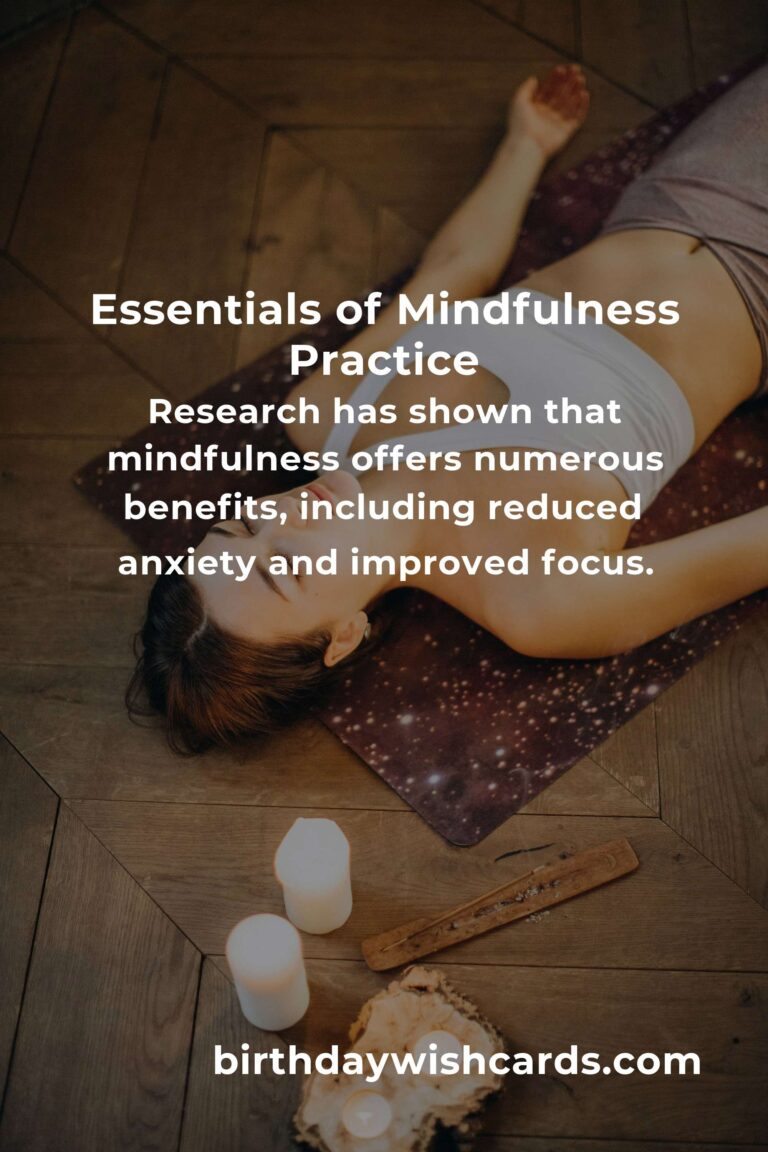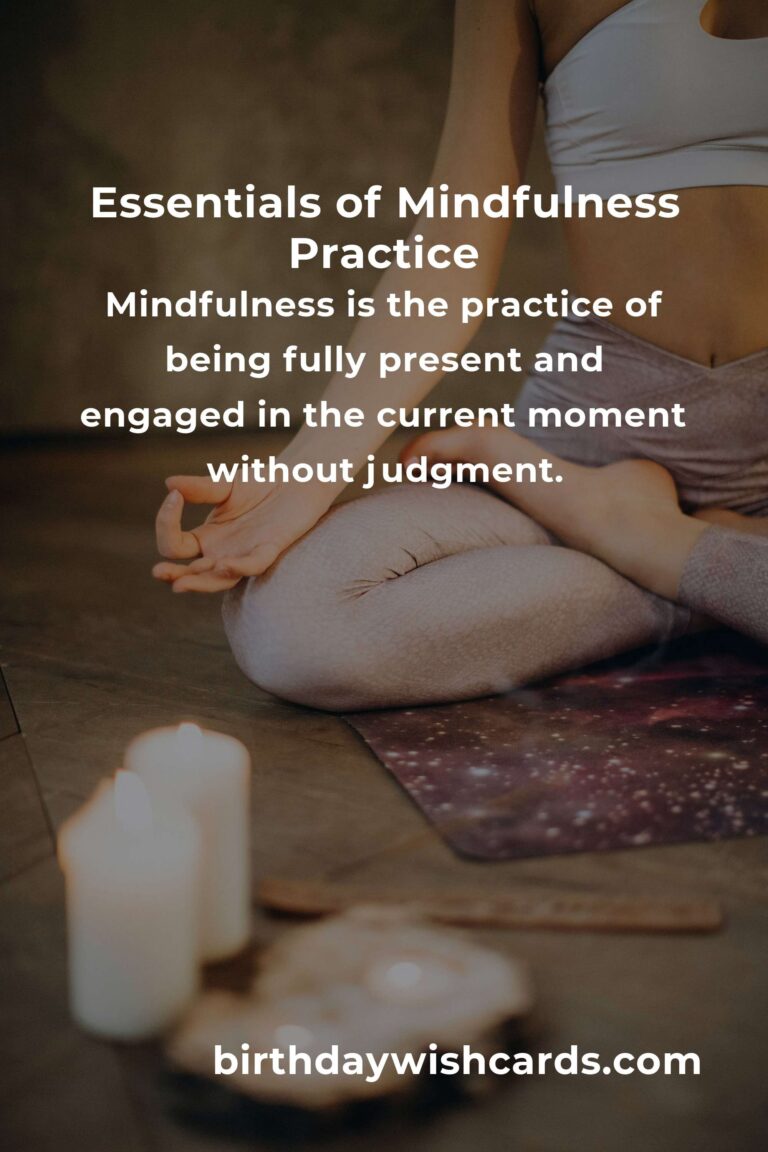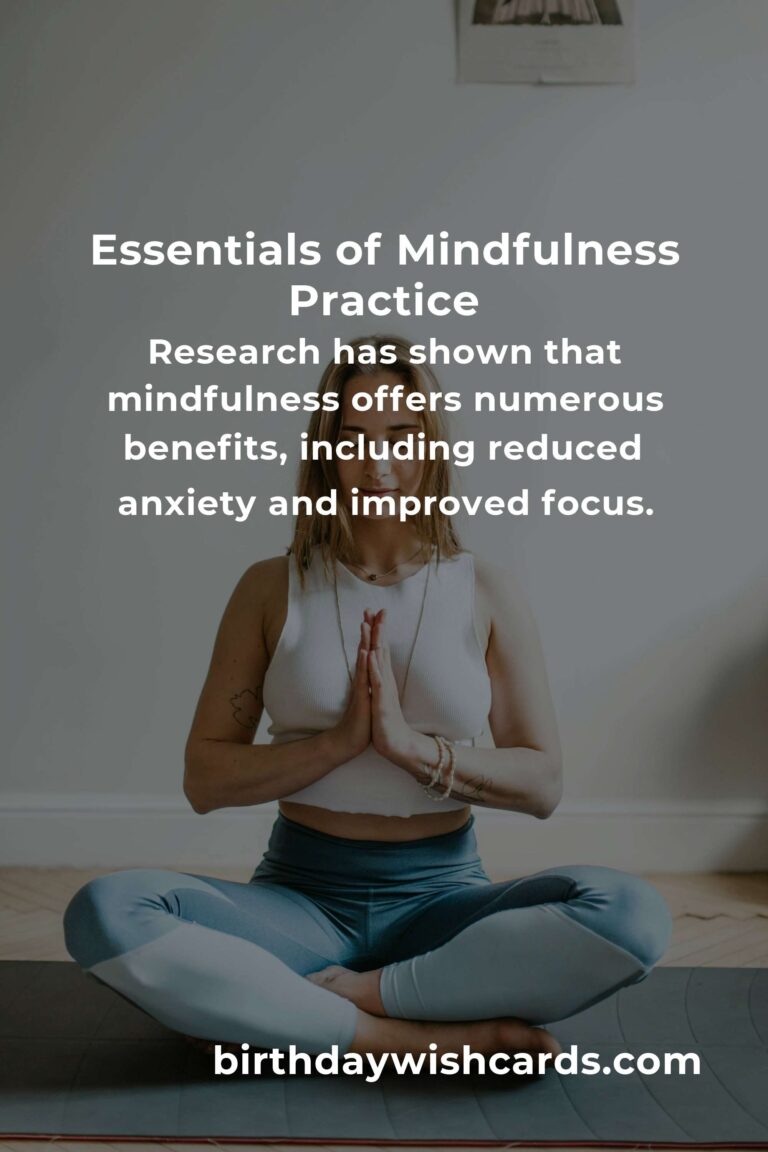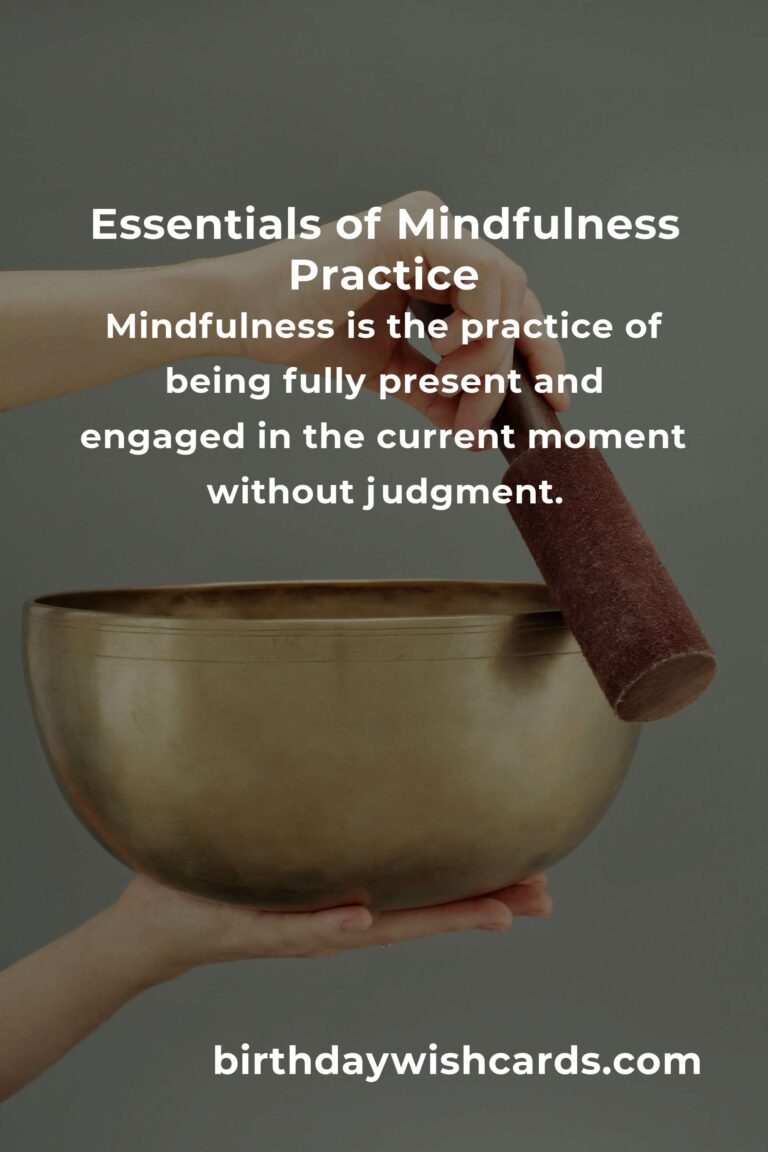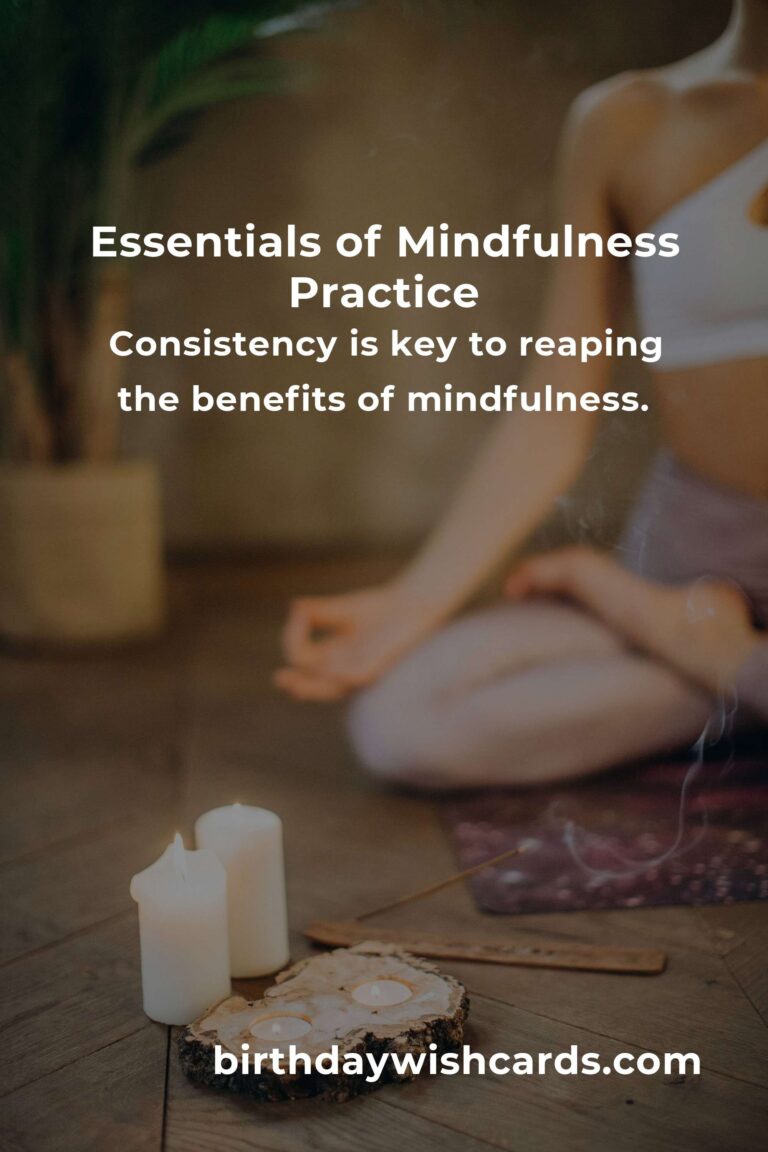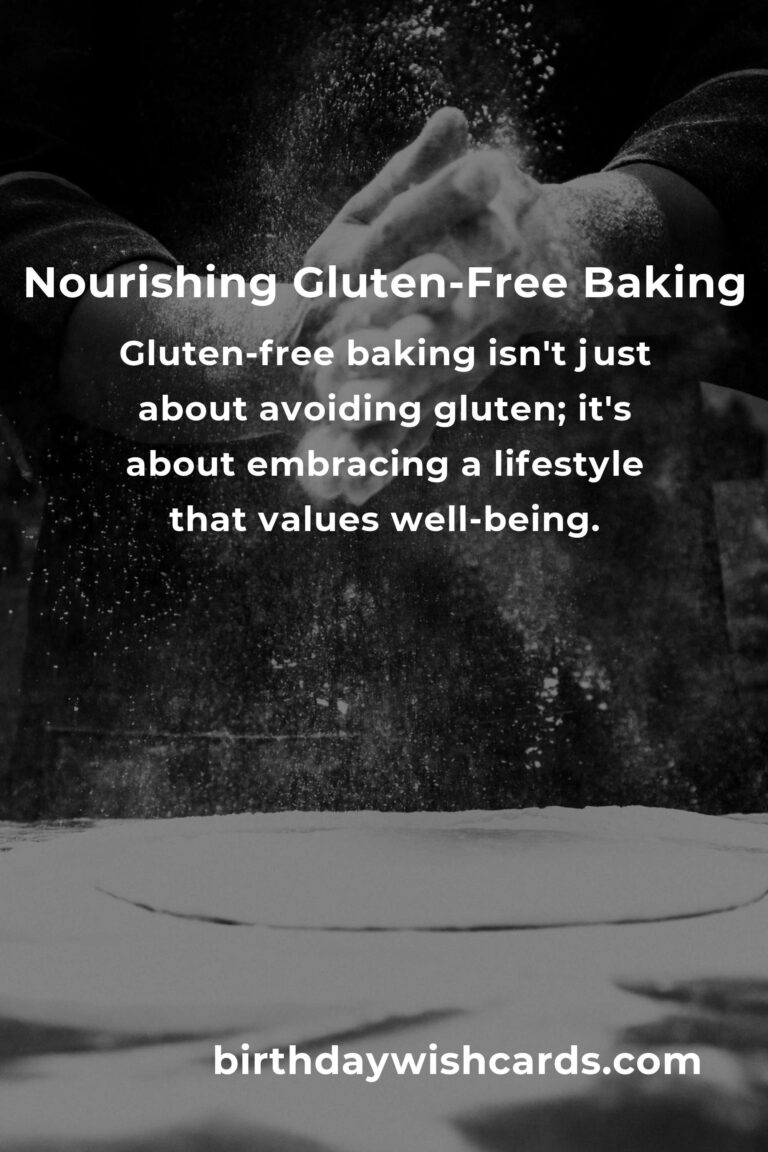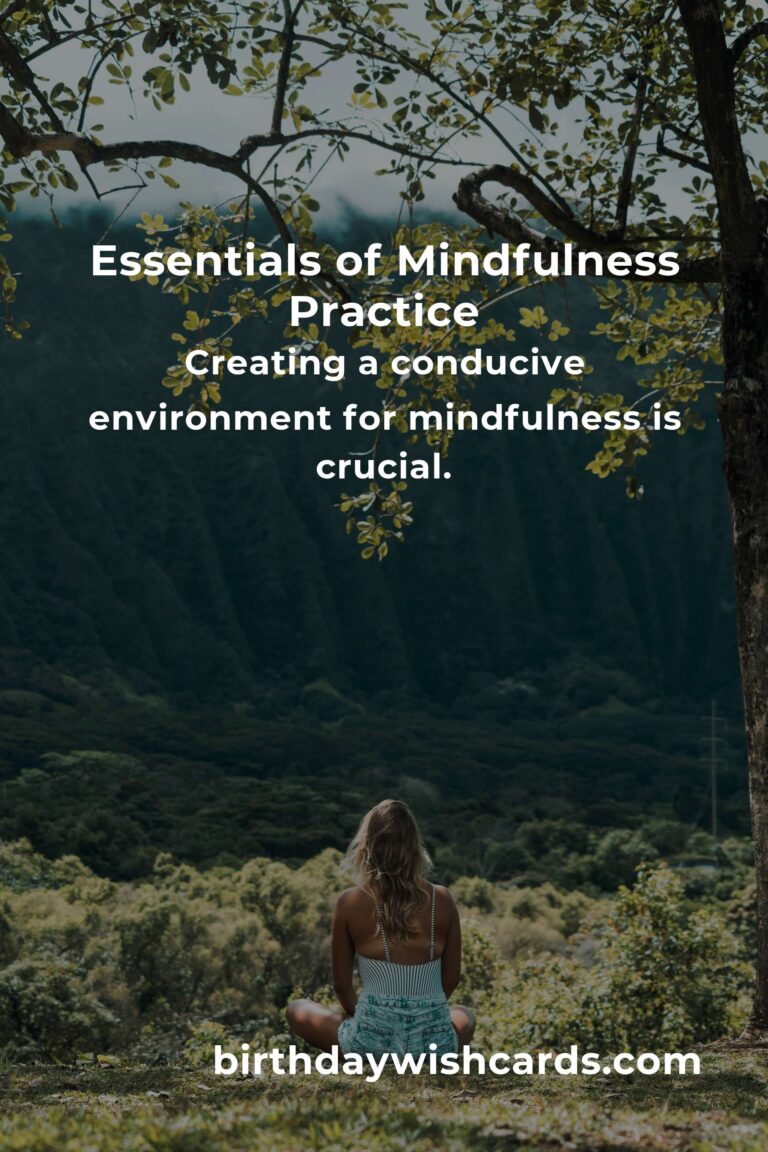
In today’s fast-paced world, mindfulness has become an essential practice for maintaining mental health and overall well-being. By focusing on the present moment, mindfulness helps reduce stress, improve concentration, and enhance emotional resilience. This comprehensive checklist will guide you through the key elements needed to cultivate an effective mindfulness practice.
Understanding Mindfulness
Mindfulness is the practice of being fully present and engaged in the current moment without judgment. It involves paying attention to your thoughts, emotions, and sensations with curiosity and acceptance. This practice helps individuals become more aware of their surroundings and internal experiences, leading to a greater sense of peace and clarity.
Benefits of Mindfulness
Research has shown that mindfulness offers numerous benefits, including reduced anxiety, improved focus, and enhanced emotional regulation. Practicing mindfulness regularly can lead to a more balanced and fulfilling life by encouraging self-awareness and promoting a positive outlook.
Setting Up Your Mindfulness Environment
Creating a conducive environment for mindfulness is crucial. Find a quiet space where you can practice without interruptions. Ensure the area is comfortable, with minimal distractions. You might consider adding calming elements such as soft lighting, soothing music, or aromatherapy to enhance the experience.
Mindfulness Techniques to Incorporate
There are various mindfulness techniques you can incorporate into your daily routine:
- Breathing Exercises: Focus on your breath, taking slow and deep inhales and exhales. This helps center your mind and reduce stress.
- Body Scan: Pay attention to different parts of your body, noticing any tension or discomfort, and gently releasing it.
- Mindful Eating: Savor each bite of your meal, paying attention to the flavors, textures, and sensations.
- Meditation: Set aside time each day for meditation, whether guided or unguided, to deepen your mindfulness practice.
Establishing a Consistent Practice
Consistency is key to reaping the benefits of mindfulness. Dedicate a specific time each day for mindfulness practice, even if it’s just a few minutes. Gradually increase the duration as you become more comfortable with the practice.
Overcoming Common Challenges
Many people face challenges when starting a mindfulness practice, such as restlessness, distractions, or difficulty staying focused. Acknowledge these challenges and approach them with patience and kindness. Remember that mindfulness is a journey, and each session offers a new opportunity for growth.
Tracking Your Progress
Keep track of your mindfulness journey by maintaining a journal. Note any changes in your thoughts, emotions, or behaviors over time. Reflecting on your progress can provide motivation and insight into the impact of mindfulness on your life.
Integrating Mindfulness into Daily Life
Meditation and mindfulness can extend beyond formal practice sessions. Incorporate mindfulness into everyday activities like walking, listening, or working. By doing so, you’ll cultivate a more mindful approach to life, enhancing your overall well-being.
Conclusion
Mindfulness offers a pathway to a more peaceful and fulfilling life. By following this complete checklist, you can establish a meaningful mindfulness practice that supports your mental and emotional health. Remember to be patient with yourself as you embark on this journey, and embrace the positive changes that mindfulness can bring.
Mindfulness is the practice of being fully present and engaged in the current moment without judgment. Research has shown that mindfulness offers numerous benefits, including reduced anxiety and improved focus. Creating a conducive environment for mindfulness is crucial. Consistency is key to reaping the benefits of mindfulness. Mindfulness offers a pathway to a more peaceful and fulfilling life.
#Mindfulness #MentalHealth #WellBeing #Meditation #SelfCare


